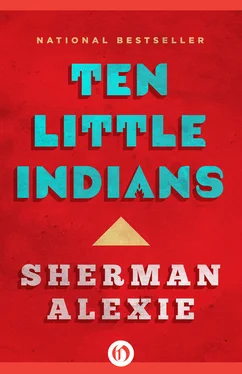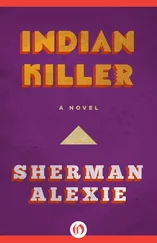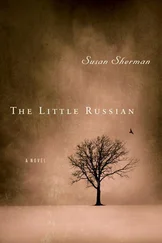At first, the women who pursued wholeness alongside my mother would be uncomfortable with my maleness, even though I was only a boy (nits make lice). But eventually they would forget I was there. My penis and scrotum would become irrelevant (a redundancy?), and I’d listen to women tell their stories for hours; I’d hear their secrets. I was afraid of female secrets then, and I’m even more afraid of them now.
“Ma, those woman secrets are killing me,” I said.
“You’re a good listener,” she said, a compliment meant to distract me from the real issue; my mother was a politician; politicians love secrets!
“But Ma, listen to me,” I said. “I heard this woman today, the one with the bad perm, she said she thinks about sex as often as any guy does.”
“That was a very honest thing for Betty to say. The whole woman embraces and celebrates her sexuality.”
“But Ma, what am I supposed to do with that information? If Betty thinks about sex that much, and you think about sex that much, and all women think about sex that much, then girls my age must think about sex a whole bunch, right?”
“I certainly did when I was your age.”
“Okay, I’m going to be walking around school looking at all these girls, and I’m going to be thinking about having sex with them. And trust me, Ma, I think about sex all the time. I’m always beating off; I’m like the Denny’s of masturbation, Ma. I’m open twenty-four hours a day, and I can get the Grand Slam special anytime I want. I got bruises on it; I got calluses. And now, when I’m thinking about sex with those girls, when I’m running off to the bathroom to do my business, you’re telling me they’re all thinking about sex with me?”
“Well, not all of them, son. You’re not that cute. But I would imagine a very healthy percentage of your female peers think about sex with you.”
“Ma, I’m not supposed to know that! Do you have any idea how dangerous that is to know right now? When I’m thirty years old, I’m supposed to look back at the teen years and say, ‘Man, if I only knew then what I know now.’ Ma, because of you, I know all of it now, so what am I supposed to do with the rest of my life?”
NOTICE OF HISTORICAL REVISION: My early sexual education did not turn me into a sexually precocious teen or promiscuous man. I have slept with seven women, a shockingly average number of lovers.
Now, I’m no Oedipus, at least not Oedipal enough to warrant an epic poem, but I have to admit that my mother was pretty dang sexy herself (so maybe I could write an Oedipal haiku). She was Spokane Indian and looked the part: cheekbones stretching from there to here, big black hair hanging halfway down her back, a big brown face with spelunkable eyes, a big bosom, wide hips, and a flat ass. I looked exactly like her, except for the big bosom. If we lived on the reservation, we’d be only two more Indians. But we lived in the city, so naturally, we had a lot of white friends. Most of our friends were white, in fact, but it wasn’t like I spent much time worrying about it. Who cares, right? But my mother started hanging around these white women who were so white I could see through them. They weren’t literally translucent, but they engaged in activities that were so damn foreign to me (so dang Caucasian) that it made me feel lonely as hell. The Title IX legislation was beginning to gain real momentum, and these women knew it, so they were voracious, ambitious, and ready to beat the crap out of the patriarchy. They were in training for the upcoming war! Good for them! I love and respect women! Given the chance, I’ll vote for the Equal Rights Amendment! I’ll be in the Gentlemen’s Auxiliary! If asked, I’ll donate 30 percent of my income to NOW to make up for the 30 percent difference in salary between men and women working the same jobs:
Community-college history teacher’s salary = $32,525
$32,525 × 30 % = $9,757.50
Amount of charitable contribution to NOW = $9,758
My mother’s friends were religious fundamentalists that summer. As women, they’d been “saved” by other women, and now they were preaching and witnessing: “Hear me roar, I am woman!”
To this day, I rarely look in the mirror and think, I’m an Indian. I don’t necessarily know what an Indian is supposed to be. After all, I don’t speak my tribal language, and I’m allergic to the earth. If it grows, it makes me sneeze. In Salish, “Spokane” means “Children of the Sun,” but I’m slightly allergic to the sun. If I spend too much time outside, I get a nasty rash. I doubt Crazy Horse needed talcum powder to get through a hot summer day. Can you imagine Sacajawea sniffling her way across the Continental Divide? I’m hardly the poster boy for aboriginal pride. I don’t even think about my tribal heritage until some white person reminds me of it:
Q: Hey, man, you’re an Indian, right?
A: Uh, yeah.
Don’t get me wrong; I like being Indian. I love the way Indian men often wear their hair long, cry too easily, wear florid clothes — all reds and pinks and lavenders and turquoises — and sing and dance most every day of their lives. If you think about it, Indian men are probably the most feminized males on the planet (and I mean that as a compliment), despite how ridiculously macho we pretend to be: “I am an Indian man, with your prior approval, hear me roar!”
Yes, I’m an Indian man trying to hold on to the best of Indian:
The cheerful acceptance of eccentricity
The loving embrace of artistic expression
The communistic sense of community
I’m also an Indian man trying to let go of the worst of Indian:
Low self-esteem
Alcoholism
Misogyny
Lateral violence
So, okay, in the end, maybe I am proud to be an Indian. But I don’t want to wear a T-shirt with my tribal enrollment number printed on the front and a photograph of Sitting Bull ironed on the back. On the long list of things that I am, I’d put Indian at number three, behind “bitterly funny” at number two and “horny bastard” at number one for the last twenty-seven years running.
But oh, my mother’s whole white friends loved how Indian we were, and my mother became more Indian in their presence. My mother’s name became more Indian.
“Oh, Estelle Walks Above,” said Ginger, the militant vegan. “That’s such a beautiful Indian name. What does it mean?”
“Oh, well,” my mother said, “I guess it means I walk above … stuff. ”
She didn’t have the guts to tell her that Walks Above wasn’t her real name. Her real last name was Miller, but that wasn’t so romantic.
“Oh, Estelle Miller, that’s such a beautiful Indian name. What does it mean?”
“Oh, well, I guess it means I mill … stuff. ”
Growing up on the reservation, my mother was cousin to Indians who had authentic Indian names, like Builds-the-Fire, FallsApart, Morning Owl, and Black Bird. She was jealous of those poetic names and felt shortchanged by her own colonized moniker, so she simply changed her name when she left the reservation. Like many of the other immigrants into the United States (and leaving the rez for Seattle is immigration), my mother reinvented herself when she landed on these democratic shores.
On the rez, she was that smart and strange girl who was always preparing to leave, and was loved by many and respected by most (and hated by a few), but she became a wise woman in the presence of her white friends. They asked her for advice about their love lives, spiritual directions, political positions, and fashion styles. Her white friends wanted to be my mother, so they started to dress and talk like her. Imagine a dozen white women running around Seattle, speaking with singsong reservation accents. How confusing! Homeless Indians had no idea what to make of these blondes who sounded like they’d just gotten off a bus from Crow Agency, Montana.
Читать дальше












